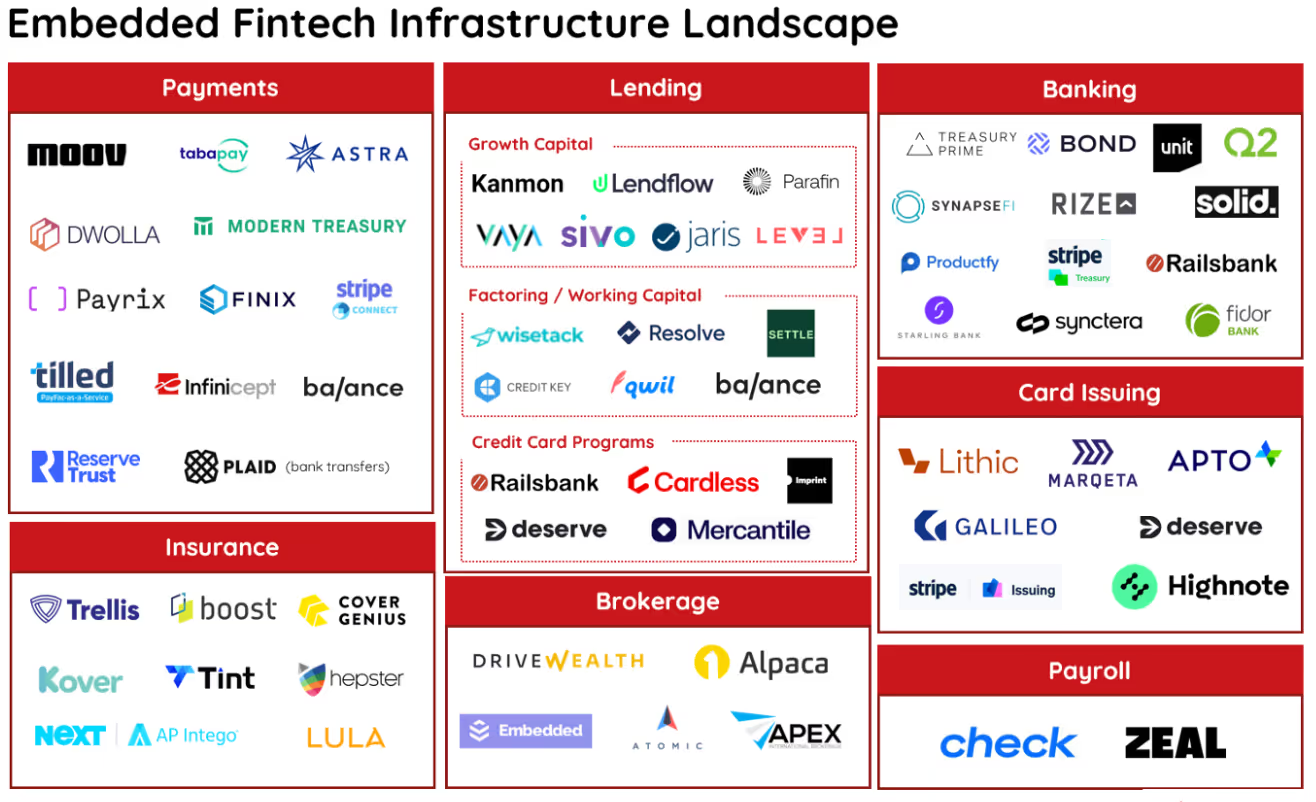The Rise of Vertical Specific B2B Data Tools and Strategies in the Age of Vertical SaaS

In recent years, the software-as-a-service (SaaS) landscape has witnessed a remarkable transformation. While traditional SaaS solutions served multiple industries, a significant trend in 2023 is the surge of vertical SaaS. These are software platforms designed to cater to specific industries and micro-niches, providing highly specialized solutions. This shift towards vertical SaaS is not isolated; it has significant implications for B2B data tools and strategies. In this blog post, we’ll explore how the increase in vertical-specific SaaS tools should lead to the rise of vertical-specific B2B data tools and strategies.
The Rise of Vertical SaaS
Before delving into the impact on B2B data tools, let’s first understand the rise of vertical SaaS and the evidence supporting this trend.
Vertical SaaS Defined
Vertical SaaS, also known as industry-specific SaaS, refers to software solutions tailored to meet the unique needs of a particular industry or niche. Unlike horizontal SaaS, which serves a broad range of businesses, vertical SaaS narrows its focus to a specific sector or micro-niche.
Examples of Vertical SaaS Companies
To illustrate the concept, here are some examples of vertical SaaS companies:
- Come on: A CRM designed specifically for fitness companies, addressing their unique customer relationship management needs.
- Thanos: A financial services platform catering exclusively to the sports industry, providing tailored financial management tools.
- RMS 360 Solutions: Offers a comprehensive management system tailored for restaurants, streamlining operations and improving efficiency.
- Clio: Specializes in legal services management, providing lawyers with tools specifically designed for their practice needs.
- Health Assurance Plan: A subscription system designed for dental clinics, simplifying appointment scheduling and patient management.
Growth of Vertical SaaS
According to a study conducted by Fractal Software, the number of vertical SaaS solutions has grown by an impressive 28% since 2020. This data indicates a substantial shift in the SaaS landscape towards more specialized industry-specific offerings.
Implications for B2B Data Tools and Strategies
The rise of vertical SaaS has far-reaching implications for B2B data tools and strategies. Here’s why businesses should take notice:
The Need for Industry-Specific Data
As businesses increasingly adopt vertical SaaS solutions, their data needs become more specific and tailored to their respective industries. Generalized data solutions no longer suffice. To effectively support these businesses, B2B data tools must provide industry-specific insights, intelligence, and leads.
Imagine a legal services management company like Clio. They require data that is directly relevant to law firms, such as information on law practices, legal trends, and potential clients. A one-size-fits-all B2B data tool would fall short in delivering the targeted data necessary for Clio’s success.
Enhanced Lead Generation
Vertical SaaS solutions often serve niche markets within their industries. This presents a unique opportunity for businesses offering B2B data tools. By aligning their data strategies with these vertical SaaS platforms, companies can enhance lead generation efforts.
For example, a B2B data provider can collaborate with a vertical SaaS solution like Thanos, which caters exclusively to the sports industry. Together, they can identify and target potential clients among sports-related businesses with precision.
Customized Insights
Vertical SaaS platforms thrive on providing customized and tailored solutions to their users. B2B data tools should follow suit by offering customized insights and reports. These insights can help businesses using vertical SaaS solutions make data-driven decisions that align with their specific industry requirements.
Imagine a restaurant management system like RMS 360 Solutions. They might require data on local food suppliers, seasonal trends, and competitor analysis. A B2B data tool that can provide such customized insights would be invaluable to their success.
Industry-Specific Account Signals
One of the critical components of B2B data tools is account signals—real-time information about potential customers. In the era of vertical SaaS, the importance of industry-specific account signals cannot be overstated. These signals should include industry-specific news, trends, mergers, acquisitions, and other relevant information.
For instance, a dental clinic using the Health Assurance Plan might benefit from account signals related to dental industry news, regulatory changes, or nearby dental practices opening or closing. Such signals can be a game-changer in their lead generation efforts.
Data Ownership and Integration
Vertical SaaS platforms often emphasize the importance of data ownership. Many traditional SaaS solutions, including data tools, lease their data. This can be a disadvantage for businesses, as they may not truly own the records they access.
Vertical SaaS providers often integrate with B2B data tools to offer a more comprehensive solution to their customers. This integration should extend to data ownership, ensuring that businesses have control over their data. It’s a crucial factor in building trust with customers and ensuring compliance with industry-specific regulations.
The Future of Vertical Specific B2B Data Tools
The rise of vertical SaaS is a clear indicator of the demand for industry-specific solutions. This trend is not limited to software alone; it extends to the data tools and strategies that support these businesses. The future of B2B data tools lies in their ability to adapt and cater to the specialized needs of vertical SaaS users.
To stay competitive in this evolving landscape, B2B data tool providers should consider the following strategies:
Vertical-Specific Data Offerings
Develop industry-specific data offerings that align with the vertical SaaS platforms gaining prominence. This includes gathering data from niche industries, enriching it with industry-specific insights, and making it available to businesses.
Collaboration with Vertical SaaS Providers
Forge partnerships and collaborations with vertical SaaS providers to offer integrated solutions. This can include joint marketing efforts, data-sharing agreements, and co-development of features that benefit both parties’ customers.
Customization and Personalization
Invest in technologies that allow for the customization and personalization of data services. Businesses should be able to tailor their data needs to match their specific industry, and data tools should enable this level of customization.
Real-Time Industry Insights
Offer real-time industry insights and account signals that are tailored to vertical SaaS users. These insights should provide timely information that can influence their business decisions and strategies.
Data Ownership and Security
Prioritize data ownership and security in all data tool offerings. Vertical SaaS users often value control over their data, and data tools should provide transparent ownership models and robust security measures.
Conclusion
The rise of vertical SaaS is a clear indication of the increasing demand for specialized solutions tailored to specific industries and micro-niches. This trend is not isolated; it has profound implications for B2B data tools and strategies. To thrive in this evolving landscape, B2B data tool providers must adapt, offering industry-specific data solutions, collaborating with vertical SaaS providers, and prioritizing customization, real-time insights, data ownership, and security.
As businesses continue to embrace vertical SaaS, the need for vertical-specific B2B data tools will only grow stronger. The future of data tools lies in their ability to align with the specialized needs of vertical SaaS users, providing them with the insights and intelligence necessary to excel in their respective industries.
FAQs
How do vertical SaaS companies handle data privacy and security concerns specific to their industry?
Handling Data Privacy and Security in Vertical SaaS Companies
Vertical SaaS companies, operating within specific industries such as healthcare, legal, and financial services, face unique challenges when it comes to data privacy and security. These sectors are governed by stringent regulations, like HIPAA for healthcare in the U.S., GDPR in Europe for data protection, and various compliance standards globally that dictate how data should be handled, stored, and processed.
To address these concerns, vertical SaaS providers implement several key strategies:
- Compliance with Industry Regulations: Vertical SaaS companies prioritize compliance with industry-specific regulations. For healthcare, this means adhering to HIPAA requirements for patient data privacy. In finance, it involves following standards like PCI DSS for payment data security and SOX for financial reporting. Legal SaaS tools must ensure data is managed in a way that complies with confidentiality obligations.
- Data Encryption: To protect sensitive information, vertical SaaS providers employ robust encryption methods both in transit and at rest. This ensures that even if data is intercepted, it remains unreadable and secure.
- Access Controls and Authentication: Implementing strict access controls and authentication procedures helps in minimizing the risk of unauthorized access. This includes using multi-factor authentication, role-based access, and regularly auditing access logs to detect and respond to suspicious activities.
- Regular Security Assessments and Compliance Audits: Conducting regular security assessments and compliance audits helps in identifying vulnerabilities and ensuring continuous adherence to the latest regulatory requirements. This proactive approach to security and compliance helps in maintaining trust with clients.
- Client Data Ownership and Portability: Ensuring that clients retain ownership of their data and providing options for data portability are crucial. This empowers businesses to have full control over their information, including the ability to move or remove it in compliance with regulations and individual preferences.
What are the challenges and limitations of transitioning from traditional to vertical-specific B2B data tools?
Challenges and Limitations of Transitioning to Vertical-Specific B2B Data Tools
Transitioning from traditional to vertical-specific B2B data tools presents several challenges and limitations:
- Integration Complexity: Integrating new vertical-specific tools with existing systems can be complex and time-consuming. Businesses may face technical challenges in ensuring compatibility and seamless data flow between different applications and platforms.
- Cost Implications: The transition often involves significant upfront costs, not just in acquiring new tools but also in training staff and potentially overhauling existing processes to accommodate the new solutions.
- Availability and Reliability of Data: Finding reliable and comprehensive industry-specific data sources can be a challenge. The quality and depth of data vary widely, and businesses may struggle to find tools that meet their specific needs.
- Resistance to Change: Organizations might encounter internal resistance to change, especially if the existing tools and processes are deeply ingrained. Convincing stakeholders of the long-term benefits of transitioning to vertical-specific tools requires clear communication and demonstration of value.
- Scalability and Flexibility Concerns: Some vertical-specific tools may not be as scalable or flexible as more generalized solutions, potentially limiting a business's ability to adapt to new opportunities or market changes.
Can you provide examples of successful collaborations between vertical SaaS providers and B2B data tool providers?
Examples of Successful Collaborations
Real-world examples of successful collaborations between vertical SaaS providers and B2B data tool providers illustrate the potential benefits and outcomes of these partnerships:
- Healthcare Data Integration: A collaboration between a healthcare SaaS company and a B2B data provider specializing in patient data management and analytics helped a hospital network improve patient care outcomes. By integrating bespoke data insights on patient demographics, health trends, and treatment outcomes, the network could tailor care plans more effectively.
- Legal Industry Client Acquisition: A legal SaaS provider partnered with a B2B data company to offer law firms insights into potential clients, case histories, and market trends. This partnership enabled firms to identify new business opportunities and tailor their marketing strategies to specific client needs, resulting in increased client acquisition rates.
- Financial Services Risk Assessment: In the financial services sector, a vertical SaaS company focusing on risk management collaborated with a data analytics firm. Together, they provided banks with advanced tools for assessing credit risk, incorporating real-time economic data, and predictive modeling. This collaboration enhanced the banks' ability to make informed lending decisions, reducing default rates.
These examples underscore the value of tailored, industry-specific solutions that leverage the strengths of both vertical SaaS and B2B data tools. By addressing the unique challenges of their target markets and fostering strategic partnerships, companies can achieve more effective lead generation, improved operational efficiency, and better customer outcomes.


